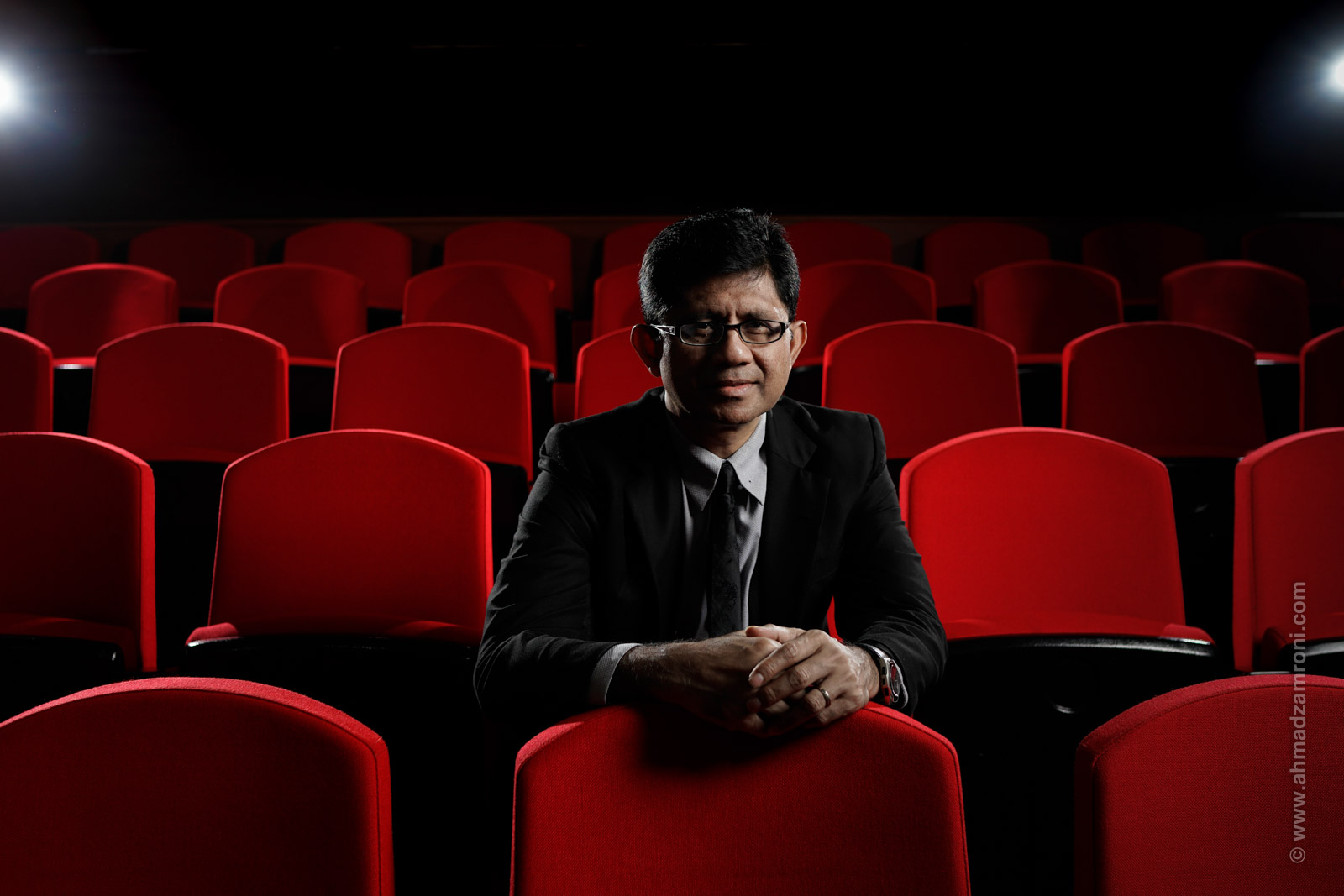
The Man Who Looks Everywhere
The dangers of corruption are more than economic.Corruption has been a long-time problem for Indonesia. As other obstacles to economic and social progress have been tackled, alumnus, Laode Syarif, is working to eradicate corruption wherever he finds it.
Long hours and a lot of pressure. That’s a fact of life for Laode Syarif (PhD (Law) ’08), who is one of only five anti-corruption commissioners in Indonesia’s Komisi Pemberantasan Korupsi (Corruption Eradication Commission), or KPK.
“It is a very dangerous job,” Syarif says. “It affects my life a lot – not just for myself but my family and even my mum. My sons, when they go to school, they must be accompanied by police officers every day.”
Syarif has good reason to be cautious. In April last year, senior KPK corruption investigator Novel Baswedan was walking home from morning prayers at a mosque in North Jakarta when two men riding a motorcycle threw acid in his face. Recovery took months of treatment, and Baswedan remains partly blind.
Still, the investigation he was working on caught a big fish. It resulted in the conviction, a year later, of the speaker of the House of Representatives, Setya Novanto, and implicated dozens of other officials.
The KPK may have some powerful enemies, but it also has the unwavering support of the Indonesian people. Since its establishment in 2003, its public approval rating has hovered around 80 percent. And the nation’s citizens play an important role in its operation, phoning in around 7000 corruption tip-offs a year to its 24-hour secure hotline.

Activist gives oration during a demontrartion at in front of The Corruption Eradication Commission (KPK) building in Jakarta, July 2018. Photo by Ahmad Zamroni
“Compared to the Suharto time, I think corruption in Indonesia has lessened,” Syarif says, referring to the former president whose 1968 to 1998 term became known for the large-scale corruption that ultimately led to his forced resignation. “But there is still a lot.”
Successful KPK convictions have included high-ranking police officer Djoko Susilo (sentenced to 10 years for corruption and money laundering), former chief justice of the Constitutional Court Akil Mochtar (jailed for life for bribery and money laundering), former sports minister Andi Mallarangeng (four years for bribery) and the aforementioned Novanto (for the embezzlement of funds causing US$165 million in state losses; he was sentenced to 15 years and ordered to repay US $7.3 million).
Syarif believes the eradication of corruption is key to Indonesia’s future. The country is rich in natural resources including gold, copper, nickel and oil, but much of this wealth has been squandered by decades of mismanagement and corruption, keeping too many of Indonesia’s 260 million people close to poverty.
“The Indonesian people are sick of corruption,” Syarif says plainly. “But too many in government have close connections to business, and they still want to continue the good old days.”
The KPK prosecutes an average of one case a week, a rate that Syarif says he could double if he had the resources. While the commission is independent, it relies on funding from the government, some members of which would rather it didn’t exist. “Sometimes the parliament tries to make our life very hard,” Syarif explains. “So if we apply for a big budget, they always say, ‘No, this is not important.’”
For this reason and others, the job can be frustrating at times, but Syarif firmly believes his work makes a difference and that it is vital that he persist in doing it. “My background is as an anti-corruption activist and an environmental activist, so I know how it is: you have to have a belief,” he says. “You have to keep fighting, otherwise they are going to win.”
Syarif grew up on the small Indonesian island of Muna in Southeast Sulawesi province, far from the fat cats of Jakarta that are the focus of his life today. The family lived without electricity until his father came home one day with a generator. He remembers this life fondly, and he returns to the island whenever his schedule allows. On his Twitter feed he posts videos of the tranquil beaches and translucent green waters near his home.
“It was a happy place,” he says, his voice softening as he recalls a childhood spent fishing, swimming and playing badminton and soccer on the island he describes as “just beautiful”.
On graduating from high school, Syarif applied to study engineering or law at Hasanuddin University in Makassar, South Sulawesi province. He was accepted for the latter and chose international law because he wanted to travel. Scholarships allowed him to further his studies at Queensland University of Technology, and then to pursue a PhD in International Environmental Law at the University of Sydney, where he also taught.

Portrait of Laode Muhammad Syarif, Photo by Ahmad Zamroni
As a result of these studies, Syarif was recently named the 2018 Alumni of the Year by the Australian Government Australia Awards program, which originally granted him the scholarship that made his Australian studies possible.
During his time in Sydney he connected with Anjelita Malik, whom he’d previously met in Jakarta where she worked in the Australian Embassy. They married, and although their twin boys were born after their return to Jakarta, Syarif playfully refers to them as “Australian made”.
Looking back on his time in Sydney almost as fondly as he does his childhood in Muna, Syarif says he was tempted to stay but was drawn back to his homeland because he wanted to put everything he’d learnt at the University into practice. On his return to Indonesia, he developed anti-corruption programs for law enforcement agencies and the Supreme Court, and assisted the KPK, which subsequently appointed him a commissioner in 2015.
Indonesia was once infamously named a world leader in corruption, thanks to former president Suharto. Now the KPK has turned it into something of a leader in anti-corruption. The British ambassador to Indonesia, Moazzam Malik, recently praised the country, saying it had successfully met 17 of the 19 commitments ratified in 2016 anti-corruption summits in London.
While Syarif’s contribution to the cause has been significant, soon the KPK will have to do without him: in 2019, his four-year term will end and it will be time for him to move on. So what will be next for this dogged yet mild-mannered professor-turned-crime-fighter?
“If the government wants me to contribute with my skills, I am always open,” Syarif says. “But teaching is my passion. I like the smell of libraries; I like the smell of universities. My KPK office does not have the smell of libraries.”
Written by Gabriel Wilder
Photography by Ahmad Zamroni
Original source Sydney Alumni Magazine October 2018 Issue : https://sydney.edu.au/

Opener page of Sydney Alumni Magazine.

Portrait of Laode Syarif Indonesian anti-corruption commissioner Laode Syarif. Photo by Ahmad Zamroni for Sydney Alumni Magazine.

Photo by Ahmad Zamroni for Sydney Alumni Magazine.




